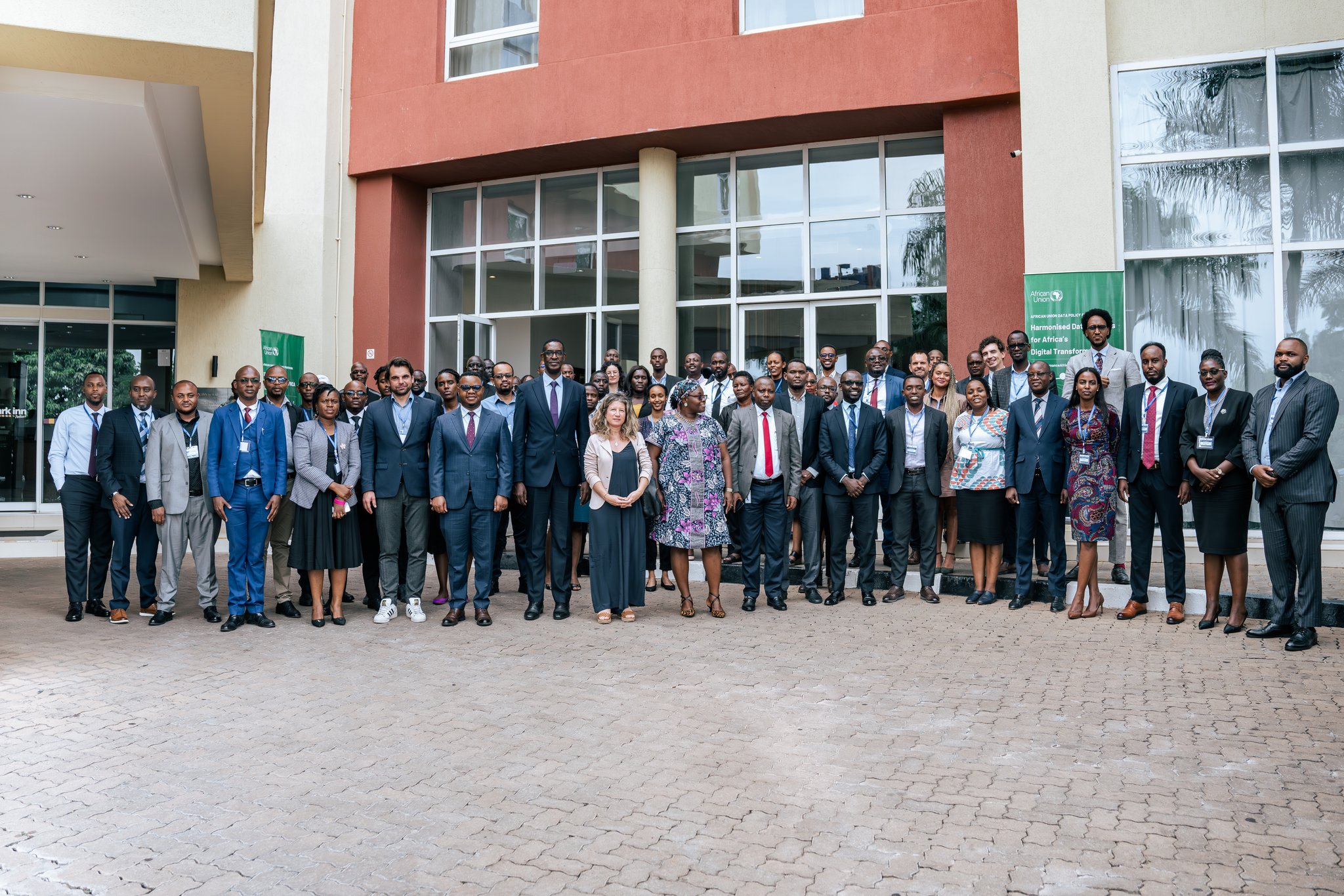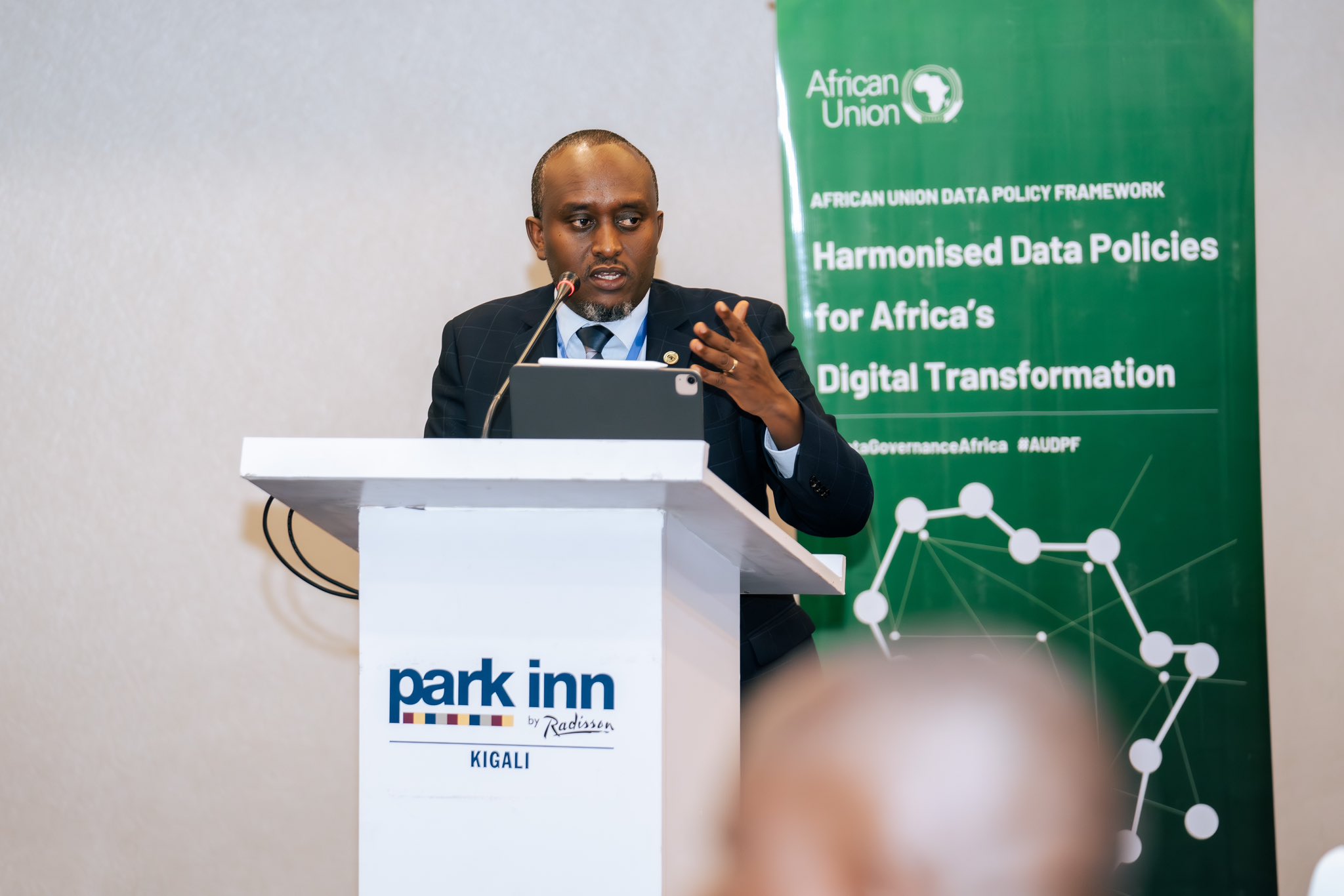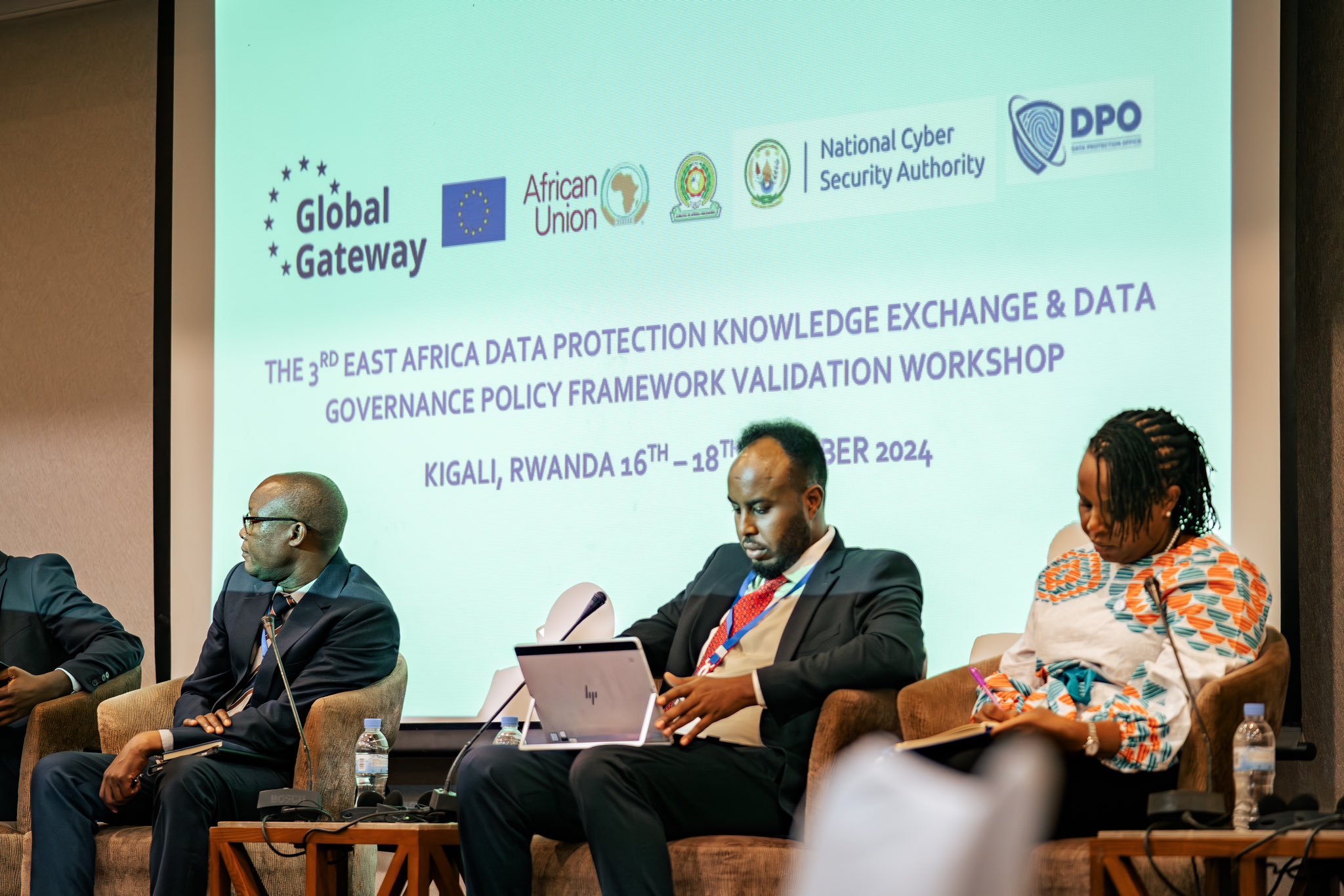
EAC set to advance Data Governance and Protection with development of a regional Policy Framework
East African Community Headquarters, Arusha, Tanzania, 25th October, 2024: The East African Community (EAC) has taken a significant step towards enhancing digital integration and safeguarding data privacy with the development of a regional Data Governance Policy Framework.
The EAC Data Governance Policy Framework, which aims at harmonising data governance across Partner States to foster secure, efficient, and inclusive digital systems for sustainable economic growth and regional integration, was validated by a diverse group of stakeholders in Kigali, Rwanda.
Speaking during the three-day workshop on behalf of the EAC Deputy Secretary General in charge of Customs, Trade and Monetary Affairs, Ms. Annette Ssemuwemba, the EAC Principal Information Technology Officer, Eng. Daniel Murenzi highlighted the importance of data governance in fostering economic growth, improving governance, and ensuring public trust in digital systems.
“Data is at the heart of our economic future. Effective data governance will enable the region to harness the benefits of digitalization, while ensuring that citizens’ data is protected and used responsibly,” said Eng Murenzi
The workshop comes at a time when the EAC is moving forward with the harmonization of its data governance systems in alignment with the African Union Data Policy Framework (AUDPF), adopted in 2022.
“We are at a critical juncture,” noted the Eng. Murenzi. “By developing the EAC Data Governance Policy Framework, we are creating a unified regional approach to data governance that aligns with continental priorities and ensures the safety and efficiency of digital services in our region,” he added.
On his part, Prof. Venansius Baryamureeba, the lead consultant in the development of the framework, underscored the importance of a unified approach to data governance. “Data protection is no longer an option; it is a necessity for building trust in the digital economy,” he said.

The EAC Data Governance Policy Framework aims to harmonize the region’s approach to data management, ensuring that Partner States adopt common standards for data protection, privacy, and security.
The validation of this framework builds on a series of earlier initiatives, including successful Data Protection Knowledge Exchanges in Nairobi, Kenya, and Kampala, Uganda, as well as a consultative workshop in Dar es Salaam, Tanzania.
The workshop aimed to foster the establishment of a unified vision for regional cooperation in data governance, bringing together Partner States to align their approaches in managing data across borders.
A key focus of the meeting was the finalization of actionable recommendations, designed to harmonize the data governance frameworks of each EAC Partner State, ensuring consistency and interoperability. By establishing common standards, the EAC seeks to enhance both data protection and digital security, ultimately improving public trust in digital systems and creating a secure foundation for economic growth within the region.
In addition to technical policy alignment, the workshop sought to reinforce political commitment and collaboration among Partner States on data protection matters. The validation of the EAC Data Governance Policy Framework served as a critical step in this process, marking the transition from deliberation to implementation.
The meeting also developed a comprehensive roadmap for future activities, clearly defining the roles of various stakeholders, including governments, private sector actors, and development partners. This collaborative effort ensures that the region is well-prepared to engage in ongoing digitalization initiatives, with a solid framework guiding its progress.

Eng. Murenzi emphasized that trust is the cornerstone of any digital economy. “As we continue to embrace digitalization, it is essential that our citizens and businesses trust that their data is secure. The EAC Data Governance Policy Framework will provide the safeguards needed to protect personal data while fostering innovation and economic growth,” she noted.
With the validation of the EAC Data Governance Policy Framework, the region is now poised to move forward with the implementation of a harmonized data governance system that will enhance the digital economy, boost intra-regional trade, and protect the privacy and security of its citizens.
The workshop brought together key stakeholders from the EAC Partner States, including representatives from Data Protection Authorities, Ministries of Information, Communication Technology (ICT) and Postal Services, and Ministries of East African Community Affairs.
Also in attendance were delegates from the European Union, the African Union Commission, and the German Agency for International Cooperation (GIZ). The event was hosted by Rwanda's National Cyber Security Authority (NCSA) and the EAC Secretariat, with support from GIZ as part of its ongoing partnership with the EAC.
For more information, please contact:
Simon Peter Owaka
Senior Public Relations Officer
Corporate Communications and Public Affairs Department
EAC Secretariat
Arusha, Tanzania
Tel: +255 768 552087
Email: This email address is being protected from spambots. You need JavaScript enabled to view it.
About the East African Community Secretariat:
The East African Community (EAC) is a regional intergovernmental organisation of eight (8) Partner States, comprising the Republic of Burundi, the Democratic Republic of Congo, the Republic of Kenya, the Republic of Rwanda, the Federal Republic of Somalia, the Republic of South Sudan, the Republic of Uganda and the United Republic of Tanzania, with its headquarters in Arusha, Tanzania. The Federal Republic of Somalia was admitted into the EAC bloc by the Summit of EAC Heads of State on 24th November, 2023 and became a full member on 4th March, 2024.
Tags: #DigitalTransformation
